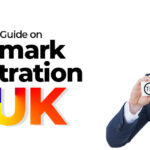In the dynamic realm of commerce, where competition is fierce and innovation reigns supreme, safeguarding intellectual property emerges as an essential strategy for brand longevity and success. Within this landscape, Trademark Registration UK stands as a cornerstone, offering a robust framework for protecting brands, logos, slogans, and other unique identifiers from unauthorized use and imitation.
At its core, trademark registration grants exclusive rights to use a particular mark in connection with specific goods or services, providing its owner with a powerful legal tool to distinguish their offerings from those of competitors. By securing trademark protection, businesses can cultivate consumer trust, build brand recognition, and establish a distinct identity in the marketplace.
Read also this-: How to Register my Trademark in the UK
The Significance of Trademark Registration UK:
Trademark Registration UK provides legal protection for unique signs, symbols, logos, and phrases associated with goods and services. It serves as a tangible manifestation of a brand’s identity, fostering trust and recognition among consumers. By registering a trademark, businesses secure exclusive rights to use the mark in connection with their products or services within the UK, thus preventing others from exploiting or diluting their brand equity.
Beyond mere brand differentiation, trademark registration serves as a potent shield against infringement, enabling trademark owners to take legal action against unauthorized use or imitation of their protected marks. This proactive approach not only deters potential infringers but also reinforces the integrity and value of the brand in the eyes of consumers.
However, navigating the landscape of trademark registration in the United Kingdom requires a nuanced understanding of its legal and procedural intricacies. From selecting an eligible mark to filing the application and navigating the examination process, each step demands careful consideration and strategic planning to ensure a successful outcome.
1. Legal Protection through Trademark Registration:
Trademark Registration in the UK offers robust legal protection for unique signs, symbols, logos, and phrases associated with goods and services. This protection extends to preventing others from using identical or similar marks in the marketplace, safeguarding the brand’s identity and reputation.
2. Building Brand Identity with Trademark Registration:
Trademark Registration solidifies a brand’s identity by legally establishing ownership of its distinctive elements. This identity becomes a valuable asset, helping consumers to easily recognize and differentiate products or services from competitors.
3. Fostering Trust and Recognition with Trademark Registration:
Through Trademark Registration, businesses foster trust and recognition among consumers. When consumers see a registered trademark, they associate it with a certain level of quality and consistency, which enhances brand loyalty and credibility.
4. Preventing Exploitation through Trademark Registration:
Trademark Registration prevents unauthorized parties from exploiting a brand’s identity for their own gain. By securing exclusive rights to use the mark, businesses can prevent competitors from using similar signs or symbols that could confuse consumers or dilute the brand’s equity.
5. Exclusive Rights Secured by Trademark Registration:
Trademark Registration grants businesses exclusive rights to use the mark in connection with their goods or services within the UK. This exclusivity enables the trademark owner to control how their brand is represented in the marketplace, ensuring its integrity and reputation are maintained.
6. Gaining Marketplace Advantage through Trademark Registration:
Trademark Registration gives businesses a competitive edge in the marketplace. It sets them apart from competitors and enhances brand visibility, ultimately leading to increased consumer recognition, trust, and market share.
7. Enforceable Protection Provided by Trademark Registration:
Registered trademarks are enforceable in a court of law, providing businesses with legal recourse against infringement. If a competitor violates the trademark owner’s rights, they can take legal action to stop the infringement and seek damages, ensuring their brand’s integrity is preserved.
8. International Protection Facilitated by Trademark Registration:
Trademark Registration in the UK can serve as a basis for seeking protection in other countries. Through international treaties and agreements, businesses can extend their trademark rights to foreign markets, protecting their brand on a global scale.
9. Asset Value Enhanced by Trademark Registration:
A registered trademark is a valuable intangible asset for a business, contributing to its overall value and attractiveness to investors, lenders, and potential buyers. Trademark Registration enhances the brand’s perceived value and strengthens its position in the marketplace.
10. Long-Term Investment in Brand Protection through Trademark Registration:
Trademark Registration represents a long-term investment in a brand’s future. It provides ongoing protection and benefits, helping businesses to maintain and grow their market position over time by safeguarding their brand identity and reputation.
The Process of Trademark Registration in UK:
Before delving into the cost implications of trademark registration, it’s crucial to grasp the broader implications and benefits that come with securing trademark protection. Beyond the immediate financial investment, trademark registration represents a long-term commitment to brand integrity and exclusivity, laying the foundation for sustained growth and competitiveness in the marketplace.
Moreover, trademark registration serves as a valuable asset that can enhance the overall value of a business, whether in the context of mergers and acquisitions, licensing agreements, or franchise arrangements. By securing legal protection for their intellectual property assets, businesses can mitigate risks, unlock new revenue streams, and fortify their position in the market ecosystem.
Embarking on the journey of Trademark Registration UK involves navigating a well-defined process orchestrated by the Intellectual Property Office (IPO).
1. Preliminary Research: Before diving into the registration process, conducting comprehensive trademark search to ensure the uniqueness of the proposed trademark is essential. By taking this precaution, the possibility of future trademark problems is reduced, as is the possibility of rejection or legal disputes.
2. Application Submission: Once confident in the uniqueness of the mark, the next step entails filing an application with the IPO. This application includes details about the applicant, the mark itself, and the goods or services it will represent.
3. Examination and Publication: The IPO conducts a thorough examination of the application to assess its compliance with legal requirements and ensure it doesn’t infringe upon existing trademarks. Upon successful examination, the mark is published in the Trademarks Journal, inviting any objections from third parties.
4. Opposition Period: Third parties have a window of opportunity to object to the registration once it is published if they feel that it violates their pre-existing rights. If no opposition is raised or successfully overcome, the mark proceeds to registration.
5. Registration and Renewal: Upon completion of the trademark registration process, the trademark is officially registered, granting the owner exclusive rights to use the mark in connection with the designated goods or services. Registration is typically valid for ten years, with the option for renewal upon expiry.
Read also this-: How to Renew the Trademark Registration in the USA
Factors Influencing the Cost of Trademark Registration:
While the direct cost of Trademark Registration UK may vary depending on the specifics of the application, several factors can influence the overall expenses involved:
1. Scope of Protection: The breadth of protection sought for the trademark significantly impacts the cost. Registering a trademark for multiple classes of goods or services incurs higher fees compared to a single-class application.
2. Professional Assistance: Engaging the services of a trademark attorney or agent can streamline the registration process and enhance the likelihood of success. While this incurs additional costs, it often proves invaluable in navigating complexities and maximizing protection.
3. Trademark Search: Conducting a thorough search to assess the availability of the proposed trademark is crucial in avoiding potential conflicts. While some opt for free online searches, comprehensive searches conducted by professionals may involve additional expenses.
4. Expedited Processing: Businesses requiring expedited processing of their trademark application may opt for accelerated services offered by the IPO. While expediting incurs higher fees, it expedites the registration process, allowing for quicker establishment of rights.
5. Maintenance and Renewal: Beyond the initial trademark registration, maintaining and renewing the trademark entails ongoing costs. Failure to renew the registration upon expiry can result in loss of rights, necessitating timely payments to ensure continuous protection.
Trademark Registration UK serves as a cornerstone in safeguarding intellectual property and fostering brand integrity. While the cost of registration may vary depending on several factors, the significance of securing exclusive rights to a trademark remains unparalleled. By understanding the intricacies of the registration process and factors influencing costs, businesses can navigate the terrain of intellectual property protection with confidence, ensuring their brands thrive in a competitive marketplace.
In conclusion, Trademark Registration UK plays a pivotal role in the modern business landscape, offering a robust framework for protecting brands, preserving market integrity, and fostering innovation. By understanding the broader landscape surrounding trademark registration and its multifaceted benefits, businesses can proactively safeguard their intellectual property assets and position themselves for long-term success in an ever-evolving marketplace.


